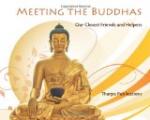WHAT THE BIRDS DO FOR US.
Have you ever thought what the world would be without the birds? A learned Frenchman, named Michelet, said that if it were not for the birds there would be no plant life, no animal life, no life at all upon this earth. Hosts of insects would destroy all plant life, and if there were no plants, no animals could live. The common chickadee destroys in twenty-five days more than a hundred thousand eggs of the cankerworm moth, and the chickadee is one of our smallest birds.
In winter, if you have an apple tree near your home, you can watch the hungry woodpecker getting his dinner. He runs up the trunk, digging into the bark for insects and insects’ eggs. Almost seventy-five per cent of his food is made up of insects.
Perhaps you have read of the army worm and of the harm it does to grass and grain. In a single night a green field attacked by this pest is made brown and bare. In 1896 the damage done in Massachusetts by this worm was estimated at $200,000. As soon as the birds discover that the army worm is at work, they come flocking from long distances. No farmer could summon helpers so promptly. Kingbirds, phoebe birds, cowbirds, Baltimore orioles, chipping sparrows, robins, English sparrows, meadow larks, crows, golden-winged woodpeckers, and quail eat the army worm, but of all these helpers, none is so valuable for this work as the red-winged blackbird and the crow blackbird.
About fifty years ago, caterpillars were destroying an immense forest in Europe, when suddenly a flock of cuckoos appeared and saved the woodland. During the great locust invasion of our own western country, when the farmers had given up the battle, an army of birds would sometimes alight upon a field and save the crop.
Swallows live entirely upon insects, and a very large proportion of the food of most of our birds is made up of insect life. Thirty-eight kinds of birds have been seen to feed on some form of the gypsy moth, and they are not expecting the salaries that are paid to government agents. The sea-gull is another official on a small salary. He is the best health-inspector of our coasts, for he not only sees what is to be done, but does it himself, promptly and well. The little tree-sparrow, in Iowa alone, destroys more than a million harmful seeds every year.
Sometimes, it is true, the birds eat the fruits that men have taken pains to raise. “What little thieves they are!” says the gardener. “Please tell me,” says Mr. Robin, “how I am to know that you care so much for some kinds of fruit, and so little for others? If you would plant shad-berries for me, I would not eat so many strawberries. In September I should be quite willing to make a dinner of choke-cherries, if they were as conveniently near as your grapes. Perhaps, in time, you will learn to be more careful in your planting. Why not protect your fruits by planting wild varieties that we like?”




